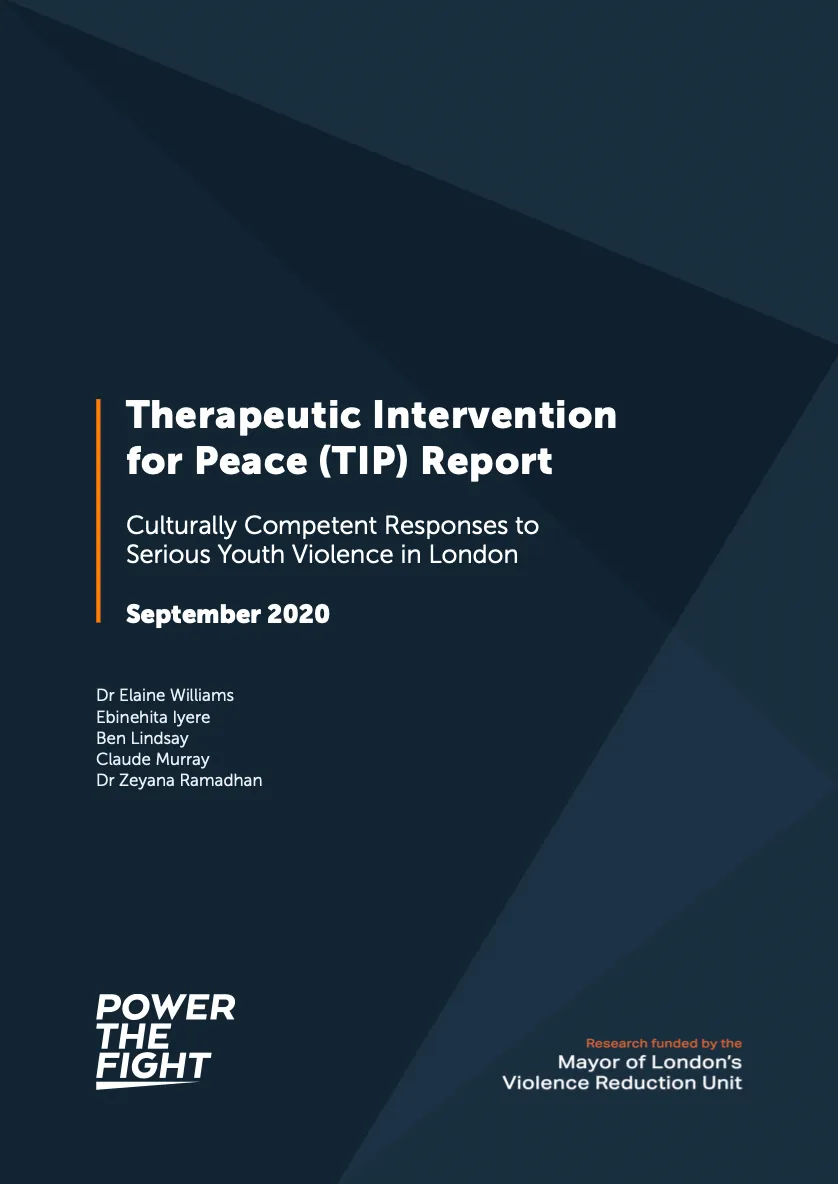
The intention of this research was to evidence the experiences of young people, families and practitioners in order to improve the effectiveness of therapeutic responses to youth violence in London. In the context of increasing rates of interpersonal violence in the capital and renewed commitment to the public health approach, this research provides practical recommendations for the improvement of therapeutic services in London. The report draws on qualitative and quantitative data from 102 young people, five families and 26 professionals providing extensive analysis of community experiences of therapeutic services.
KEY FINDINGS
The following main findings of the report represent common experiences and key themes which were repeatedly evidenced across all research areas:
1. The majority of young people surveyed had a high proximity to violence (experiencing it either first-hand or through close friends), with experiences of violence most likely to lead to feelings of anger. Black and male respondents were less likely to talk about these feelings and more likely to deal with these feelings through retaliation.
2. Therapeutic services that fail to understand the broader contexts and causes of youth violence risk harming young people further by making them feel they are the problem.
3. The language and culture of formal therapy can be a barrier for engagement with practitioners urging for greater innovation and flexibility in how therapeutic interventions are defined and delivered.
4. Marginalised groups often deeply distrust organisations and institutions due to consistent experiences of structural harm through inequality in health care, education and criminal justice systems.
5. For Black people in particular, trusting relationships with professionals rely greatly on representation and cultural competency, with young people and families much more likely to speak with practitioners who share or understand their ethnic background and culture.
6. The specific needs of women and girls in the context of community violence have been side-lined by male-focused interventions, leading to an absence of long-term girls’ projects, peer-to-peer support and parent groups for engaging families affected by trauma.
7. Referral systems are currently not fit for purpose; the threshold for engagement is too high and not effectively assessed, waiting lists are too long and there is a lack of ability to engage disenfranchised and socially marginalised groups.
8. In maintaining trusted and supportive relationships with socially marginalised young people and families, frontline practitioners are often risking their own mental health and wellbeing by becoming emotionally embedded in communities and feeling accountable for their safety.
9. There is a fundamental lack of clinical supervision for these high-risk roles, with many organisations having no internal referral process for their employees despite the harm their workers are continuously exposed to. This profession has a high ‘burnout’ rate.
10. Practice based or professionals with “lived experience” are systemically undervalued and structurally excluded from decision making at a strategic level, often made to feel culturally out of place, tokenised or exploited.
11. There is currently no cohesive strategy or ‘wrap around’ package of support in place; to provide immediate and long-term support for family and friends in the aftermath of a violent incident or traumatic loss.
RECOMMENDATIONS
The report concludes that effective therapeutic interventions to end youth violence are reliant on applied cultural competency and recommends pragmatic steps for service improvement.
The report’s recommendations are aimed at institutions and Government bodies working with families and young people, including the NHS, Department for Education, Department of Health and Social Care, Ofsted, Youth Justice Board, Metropolitan Police Service, local authorities and youth charities.